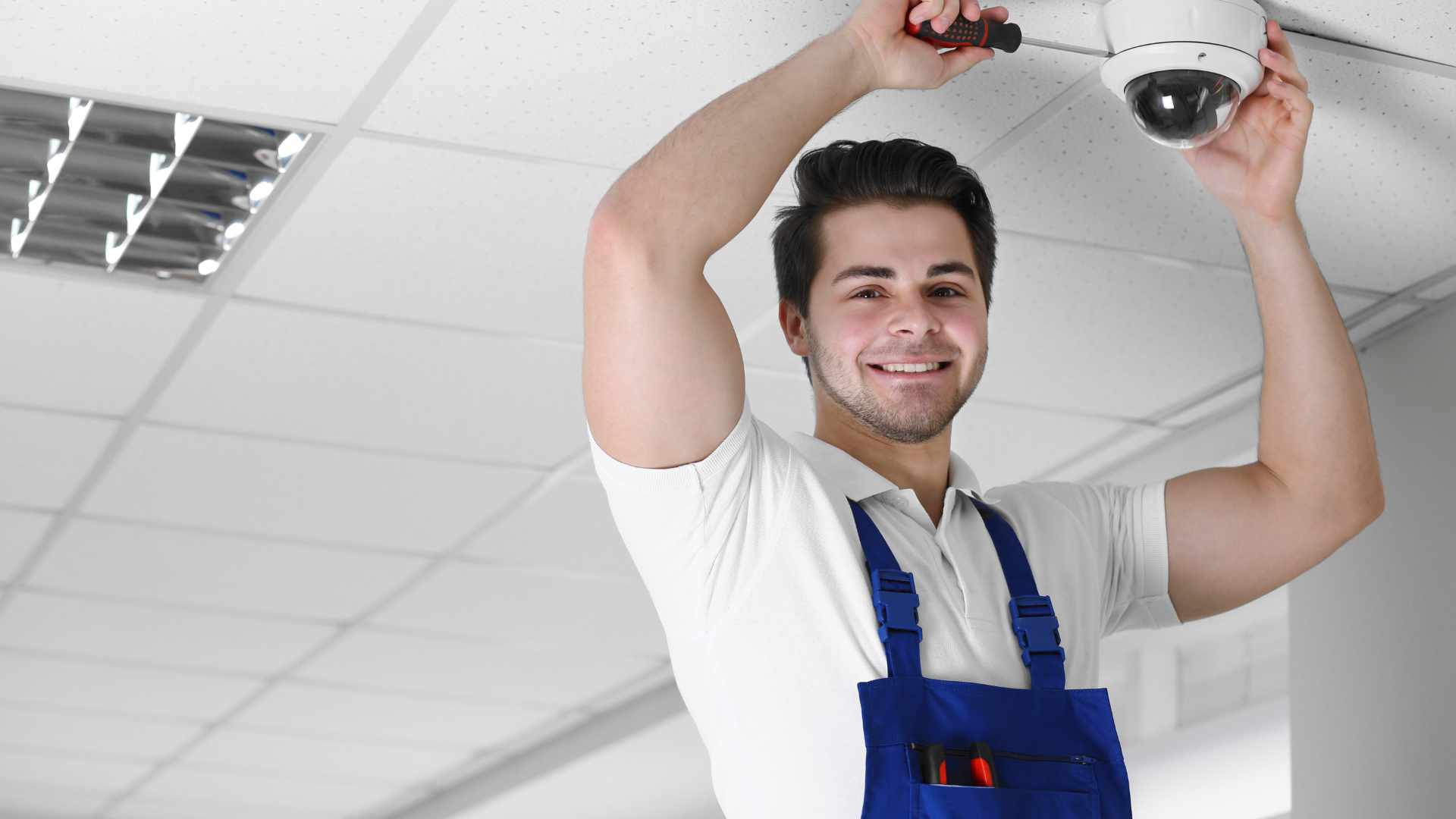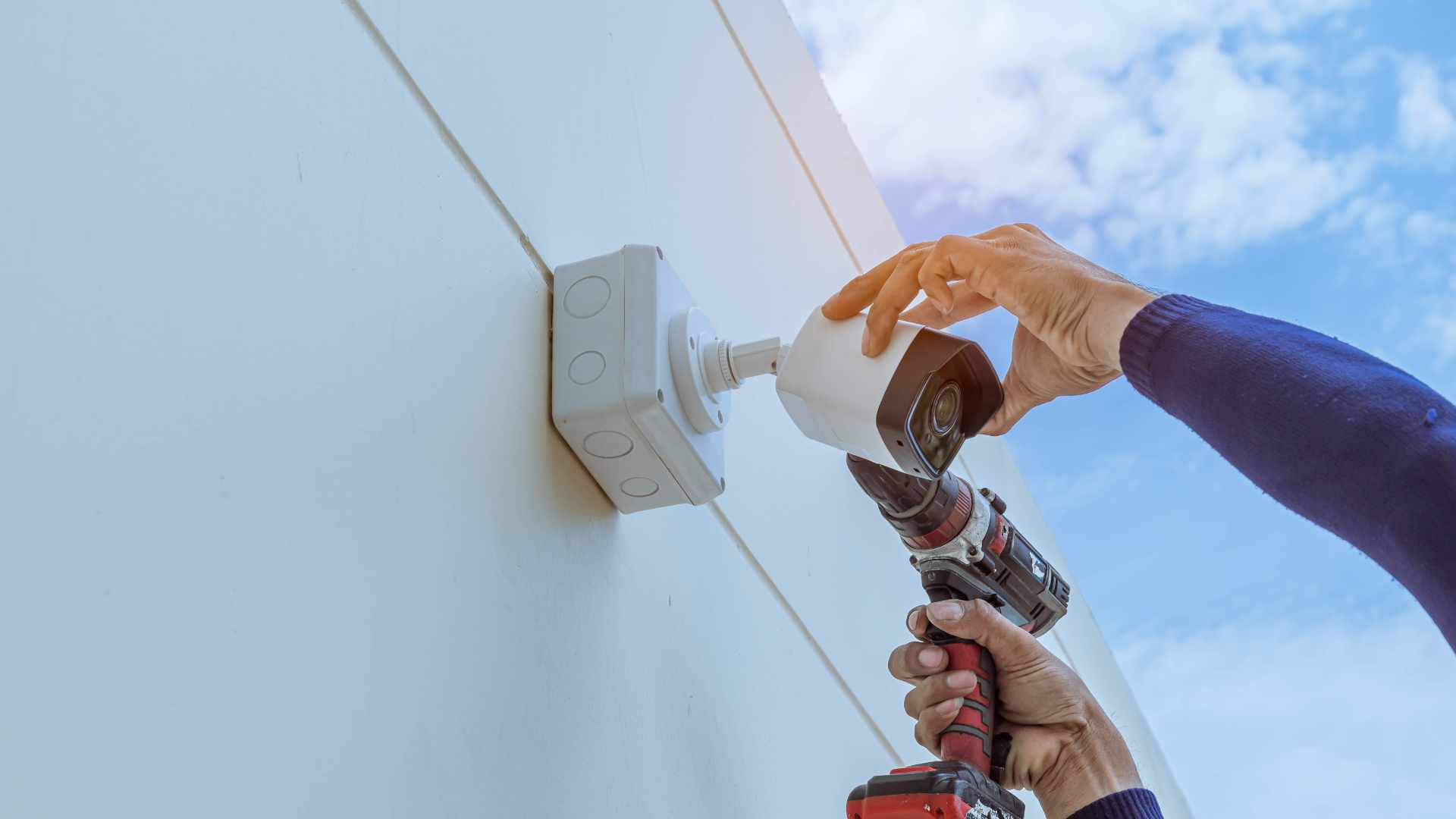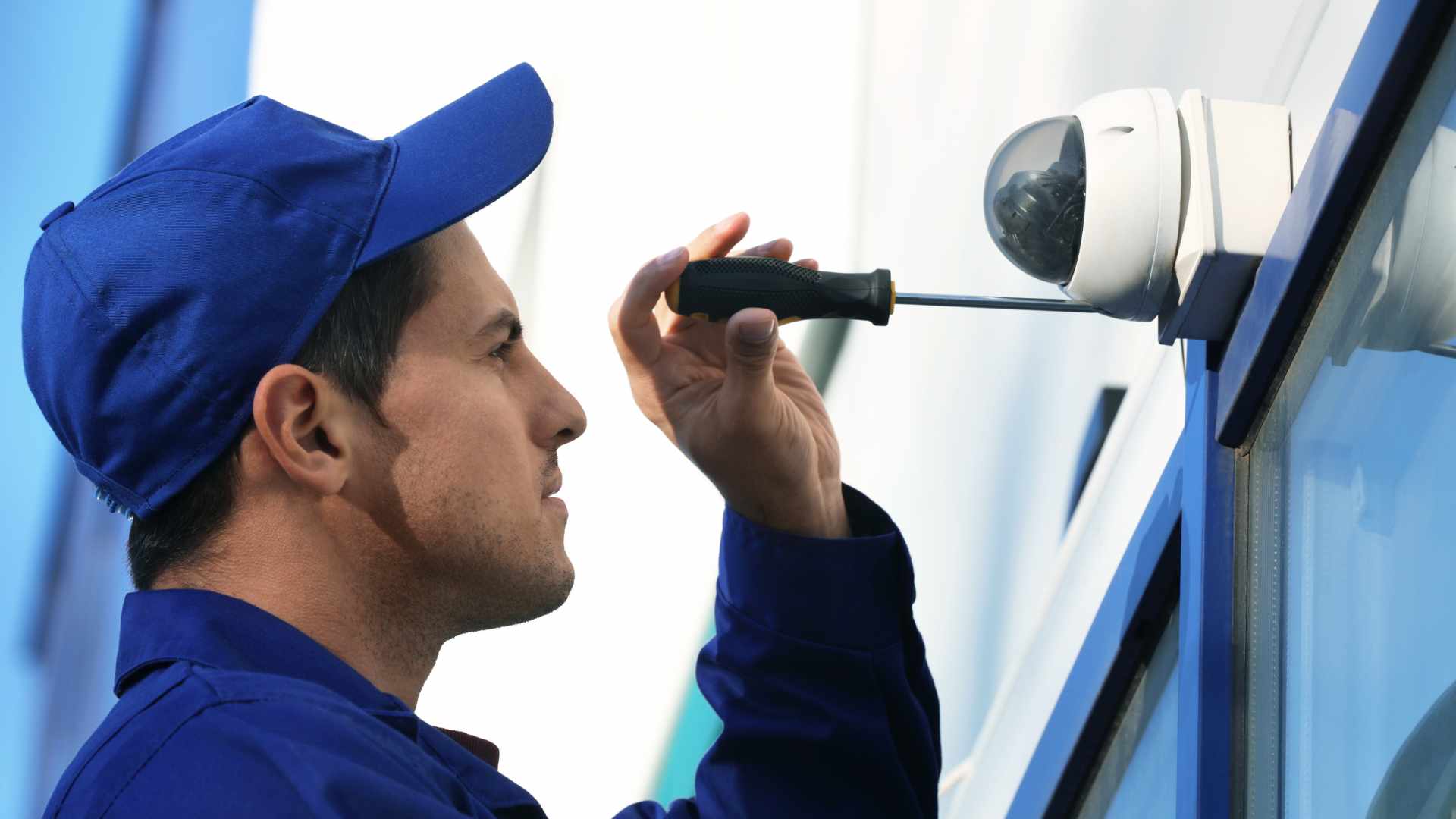Access control systems have become essential for safeguarding properties and ensuring secure environments. As the need for robust security solutions grows, many people face the decision between professional installation and a do-it-yourself approach. While DIY projects can be tempting due to potential cost savings and the satisfaction of self-reliance, they often fall short when it comes to the complexity and reliability required for access control systems.
This blog aims to shed light on why professional installation is highly recommended for access control systems. From ensuring proper system design and seamless integration to maintaining compliance with legal standards, professional installers bring a wealth of expertise and experience that significantly enhances the effectiveness and longevity of these systems. Join us as we explore the various benefits of entrusting your access control needs to the experts, ensuring that your security is both robust and reliable.
Why Should You Consider Professional Installation Over DIY?
When it comes to securing your property with an access control system, the choice between professional installation and a DIY approach is crucial. While DIY projects might seem appealing due to perceived cost savings and the satisfaction of doing it yourself, the reality is often far more complex and fraught with potential issues. Let’s explore the differences and understand why professional installation is generally the better choice.
Comparison of Professional Installation vs. DIY
Expertise and Experience: Professional installers bring years of specialised training and hands-on experience to the table. They are well-versed in the latest technologies and security protocols, ensuring that your system is set up correctly from the start. In contrast, DIY installations rely on the homeowner’s ability to interpret and follow sometimes complicated instructions, which can lead to mistakes and oversights.
Quality of Work: Professionals use high-quality tools and equipment to ensure that every component of the access control system is installed to the highest standards. DIY efforts, while well-intentioned, may lack the precision and thoroughness that professionals guarantee, potentially compromising the system’s effectiveness.
Time and Convenience: Hiring a professional saves you considerable time and hassle. Installers can complete the job quickly and efficiently, allowing you to focus on other important tasks. DIY installations can be time-consuming, often requiring significant effort to understand and execute the installation process correctly.
Common Challenges Faced in DIY Installations
Technical Difficulties: Access control systems are complex and require a solid understanding of both hardware and software components. DIY installers often encounter technical difficulties, such as wiring issues, network configuration problems, and software integration challenges that can be frustrating and time-consuming to resolve.
Lack of Proper Tools: Professional installation requires specialised tools that most homeowners do not possess. Improvising with incorrect tools can lead to improper installation, damaging the components and reducing the system’s overall effectiveness.
Inadequate Planning: Effective access control systems require careful planning and customisation to suit the specific needs of the property. DIY installers may lack the knowledge to design a system that covers all entry points and integrates seamlessly with existing security measures.
Potential Risks and Security Issues with Improper Installation
Security Vulnerabilities: Improperly installed access control systems can create significant security vulnerabilities. For example, poorly secured wiring or inadequately configured software can provide easy entry points for intruders. Professionals ensure that every aspect of the system is secure and resistant to tampering.
System Failures: A DIY installation increases the risk of system failures due to incorrect setup. Such failures can lead to lockouts, unauthorised access, or total system shutdowns, leaving your property unprotected at critical times.
Compliance Issues: Many access control systems need to comply with specific industry standards and regulations. Professional installers are familiar with these requirements and ensure that your system meets all necessary compliance standards, avoiding potential legal issues and penalties.
While DIY installations might seem like a cost-effective solution, the complexities and risks involved often outweigh the initial savings. Professional installation not only ensures that your access control system is optimally configured and reliable but also provides peace of mind knowing that your security is in expert hands.
How Do Professionals Ensure Proper System Design and Planning?
Installing an access control system is not a one-size-fits-all endeavour. The expertise of professional installers is paramount in ensuring that the system is meticulously designed and planned to meet the unique requirements of each facility. Here’s how professionals ensure that your access control system is robust, customised, and future-proofed.
Importance of Initial Assessment and Site Evaluation
Thorough Site Analysis: Professionals begin with a comprehensive assessment of the premises. This evaluation involves understanding the layout, identifying entry and exit points, and assessing potential vulnerabilities. This step is crucial because it lays the groundwork for designing a system that offers maximum security.
Understanding Operational Needs: During the initial assessment, professionals also take the time to understand the specific operational needs of the facility. This includes the number of users, the frequency of access, and any special security requirements. By gathering this information, they can tailor the system to ensure it supports the day-to-day activities seamlessly.
Customising the System to Fit the Specific Needs of the Facility
Tailored Solutions: Based on the site evaluation, professionals customise the access control system to fit the specific needs of the facility. This might involve selecting the appropriate types of access points (e.g., biometric scanners, keycard readers, keypad entry systems) and determining their optimal placement to enhance security and user convenience.
Integration with Existing Systems: Professionals ensure that the new access control system integrates smoothly with any existing security measures. Whether it’s CCTV, alarm systems, or building management systems, this integration is vital for creating a cohesive security infrastructure that is easy to manage.
User-Specific Access Levels: Customisation also extends to setting up user-specific access levels. Professionals configure the system to grant different levels of access based on roles and responsibilities, ensuring that only authorised personnel can access sensitive areas.
Ensuring Scalability Of Access Control System
Planning for Growth: A key aspect of professional system design is scalability. Professionals design the access control system with future growth in mind, ensuring that it can easily accommodate additional access points, users, or new technologies as the facility expands or evolves.
Regular Updates and Maintenance: To keep the system future-proof, professionals also offer ongoing maintenance and support services. Regular updates and routine checks ensure that the system continues to operate at peak performance and adapts to any emerging security threats or technological advancements.
What Are the Benefits of Expertise and Experience in Installation?
When it comes to installing access control systems, the expertise and experience of professional installers are invaluable. Their technical proficiency and thorough understanding of security protocols ensure that your system is not only effective but also compliant with all necessary standards. Here’s how their expertise translates into tangible benefits for your security setup.
Technical Knowledge and Experience of Professional Installers
Deep Technical Proficiency: Professional installers possess extensive technical knowledge gained through rigorous training and hands-on experience. They are adept at handling the intricate details of access control systems, from wiring and hardware setup to software configuration and integration. This technical proficiency ensures that every component functions optimally and cohesively, providing a seamless and secure access solution.
Problem-Solving Skills: Experience equips professionals with the ability to troubleshoot and resolve issues efficiently. They can quickly identify and address potential problems that might arise during installation, minimising downtime and ensuring the system is operational as soon as possible. Their problem-solving skills are critical in avoiding the common pitfalls that DIY installers might encounter.
Ensuring Compliance with Security Standards and Regulations
Adherence to Standards: One of the significant benefits of professional installation is the assurance that your access control system complies with all relevant security standards and regulations. Professionals stay updated with industry standards and legal requirements, ensuring that your system meets these stringent guidelines. This compliance is crucial for maintaining the integrity and legality of your security setup.
Comprehensive Documentation: Professionals provide thorough documentation of the installation process, including system configurations and maintenance records. This documentation is essential for compliance audits and can be invaluable if any issues arise in the future. It also helps in maintaining a clear understanding of the system’s specifications and operational guidelines.
Handling Complex Installations with Multiple Access Points
Expert Management of Complexities: Access control systems in large facilities often involve multiple access points, each with unique security needs. Professionals have the expertise to manage these complexities, ensuring that each access point is properly secured and integrated into the overall system. Their experience with similar installations allows them to foresee and mitigate potential challenges, delivering a robust and reliable system.
Customised Solutions for Complex Environments: Professionals tailor their approach to suit the specific requirements of complex environments. They can design and implement solutions that address the unique challenges posed by multiple access points, such as varying levels of access, different types of entry systems, and the integration of other security measures. This customised approach ensures that every aspect of your security needs is met comprehensively.
Ensuring System Integration: For facilities with existing security infrastructure, professional installers ensure seamless integration of the new access control system. They have the technical skills to connect the new system with existing surveillance cameras, alarm systems, and building management systems, creating a unified and efficient security network.
How Do Professionals Ensure Seamless Integration with Other Systems?
Integrating an access control system with existing security infrastructure is a critical aspect of creating a cohesive and effective security solution. Professionals possess the expertise to ensure that all components work together seamlessly, providing comprehensive protection and streamlined management. Here’s how they achieve this integration and the benefits it brings.
Integrating Access Control with Other Security Systems (CCTV, Alarm Systems, etc.)
Professionals adopt a holistic approach to security, recognising that access control systems are most effective when integrated with other security measures such as CCTV, alarm systems, and intrusion detection systems. This comprehensive integration ensures that all security components work in tandem, providing multiple layers of protection.
The technical expertise of professional installers enables them to effectively integrate various systems. They understand the complexities of different technologies and can configure them to communicate and function together. For instance, they can set up access control systems to trigger CCTV recordings or alarm systems upon unauthorised access attempts, enhancing the overall security response.
Ensuring Interoperability and Centralised Control
Professionals ensure that all security systems are interoperable, meaning they can interact and share information seamlessly. They achieve this by using compatible technologies and protocols, allowing different systems to work together without conflicts. This interoperability is crucial for creating a unified security platform where all components can be monitored and controlled from a centralised interface.
A centralised control system is one of the significant advantages of professional integration. It allows security personnel to manage and monitor all aspects of the security infrastructure from a single point of control. This centralisation simplifies operations, improves response times, and ensures that no critical alerts are missed. Professionals set up and configure this centralised control, tailoring it to the specific needs of the facility.
Benefits of a Unified Security System for Comprehensive Protection
A unified security system provides a comprehensive view of the facility’s security status. By integrating access control with CCTV and alarm systems, security personnel can monitor all activities in real-time, ensuring that any suspicious behaviour is immediately detected and addressed. This enhanced monitoring capability significantly improves the overall security posture.
Integrated systems allow for faster and more effective incident response. For example, an access control breach can automatically trigger alarms and start CCTV recordings, providing immediate evidence and alerting security teams. This rapid response capability helps in mitigating security threats quickly and efficiently.
With all security systems integrated into a single platform, daily operations become more streamlined. Security personnel can manage access permissions, monitor live feeds, and respond to alerts from one interface, reducing complexity and improving efficiency. This streamlined approach not only enhances security but also reduces the operational burden on security staff.
What Are the Cost Implications of Professional Installation?
When considering the installation of an access control system, it’s essential to weigh the cost implications of opting for professional installation versus doing it yourself. While the initial investment in professional services may appear higher, the long-term cost benefits, avoidance of hidden expenses, and value-added services make it a financially sound decision.
Long-Term Cost Benefits vs. Initial Investment
Initial Investment: Hiring professional installers typically involves a higher upfront cost compared to a DIY approach. This initial investment covers the expertise, high-quality equipment, and thorough installation processes that professionals provide.
Long-Term Savings: The long-term savings realised through professional installation often outweigh the initial costs. Professionals ensure that the system is installed correctly the first time, minimising the likelihood of future issues that could require costly repairs or replacements. A professionally installed system is more reliable and durable, reducing maintenance costs over time and extending the lifespan of the equipment.
Avoiding Hidden Costs and Expensive Repairs Due to Improper Installation
Avoidance of Hidden Costs: DIY installations can seem cheaper initially, but they often come with hidden costs. These can include the purchase of additional tools, unforeseen complications requiring professional intervention, or the need to buy replacement parts due to incorrect installation. Such hidden costs can quickly add up, making the DIY route more expensive than anticipated.
Preventing Expensive Repairs: Improper installation can lead to system malfunctions and failures. These issues not only compromise security but also necessitate expensive repairs. Professionals install systems to the manufacturer’s specifications and industry standards, ensuring optimal performance and reducing the risk of costly breakdowns. Their work typically includes warranties and service agreements, providing additional financial protection against potential issues.
Value-Added Services Provided by Professional Installers
Comprehensive Support: Professional installers offer value-added services that go beyond mere installation. These include initial consultations, system design tailored to your facility’s needs, and comprehensive training for your staff. Such support ensures that your system operates efficiently and that your team is well-equipped to manage it.
Ongoing Maintenance and Upgrades: Professionals provide ongoing maintenance services to keep your system in peak condition. Regular maintenance prevents minor issues from escalating into major problems, thus saving on repair costs. Additionally, professionals stay updated with the latest technological advancements and can recommend upgrades that enhance your system’s capabilities without requiring a complete overhaul.
Enhanced Security and Peace of Mind: The expertise of professional installers ensures that your access control system is robust and secure. This peace of mind is invaluable, as it assures you that your facility is protected against unauthorised access. The enhanced security reduces potential losses and liabilities, offering a significant financial advantage over time.
Conclusion
Choosing professional installation for your access control system is a decision that pays off in multiple ways. From the outset, professionals bring a depth of expertise and technical knowledge that ensures your system is designed and installed correctly, tailored to your specific needs, and fully compliant with all security standards and regulations. This thorough approach prevents costly mistakes and system failures, providing a robust and reliable security solution.
The integration capabilities of professionals mean your access control system will work seamlessly with other security measures, creating a unified and efficient security infrastructure. The long-term cost benefits, avoidance of hidden expenses, and added value from ongoing support and maintenance further highlight the advantages of professional installation. Ultimately, investing in professional installation not only enhances the effectiveness and reliability of your access control system but also provides peace of mind, knowing that your facility is well-protected against potential security threats.
For comprehensive protection and a secure, future-proof access control system, entrusting the installation to professionals is the recommended path. Contact a professional installer today to ensure your security needs are met with the highest standards of quality and expertise.
FAQs About Professional Installation of Access Control
Why Should One Opt For Professional Installation Over DIY For Their Access Control System?
Professional installation ensures that an access control system is correctly and securely installed. Professionals have the technical knowledge and experience to handle complex setups, ensuring the system functions optimally and is compliant with security standards and regulations. This reduces the risk of malfunctions and enhances the overall reliability of the security infrastructure.
What Are The Long-Term Cost Benefits Of Choosing Professional Installation?
Although the initial cost of professional installation may be higher, it offers significant long-term savings. Proper installation reduces the likelihood of system failures and costly repairs. Professionals also provide ongoing maintenance and support, ensuring the system remains in good condition, which extends its lifespan and further reduces long-term costs.
How Do Professionals Ensure That An Access Control System Integrates With Other Security Systems?
Professional installers have the expertise to integrate access control systems with other security measures such as CCTV, alarm systems, and intrusion detection systems. They ensure interoperability and centralised control, allowing all systems to work together seamlessly. This integration enhances overall security and simplifies management by providing a unified security platform.
What Value-Added Services Do Professional Installers Provide?
In addition to installation, professional installers offer a range of value-added services, including initial consultations, customised system design, user training, and ongoing maintenance. They also stay updated with the latest technological advancements and can recommend upgrades to keep the system current and effective.
How Does Professional Installation Impact The Compliance And Security Of An Access Control System?
Professional installers ensure that an access control system adheres to all relevant security standards and legal regulations. This compliance is crucial for maintaining the integrity and legality of the security setup, avoiding potential fines and legal issues. Professionals also document the installation process and provide regular updates, ensuring the system remains compliant and secure over time.



